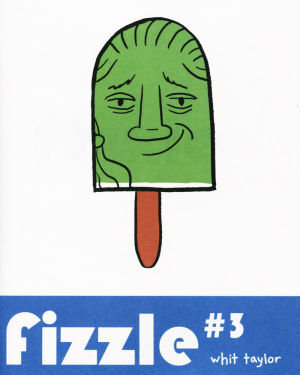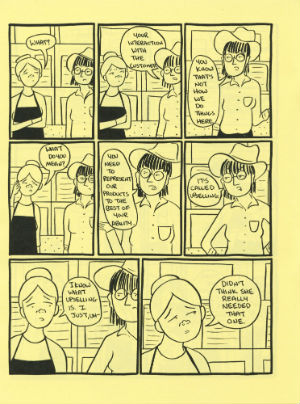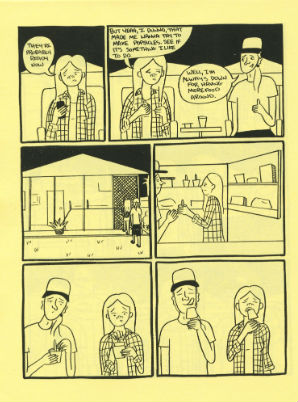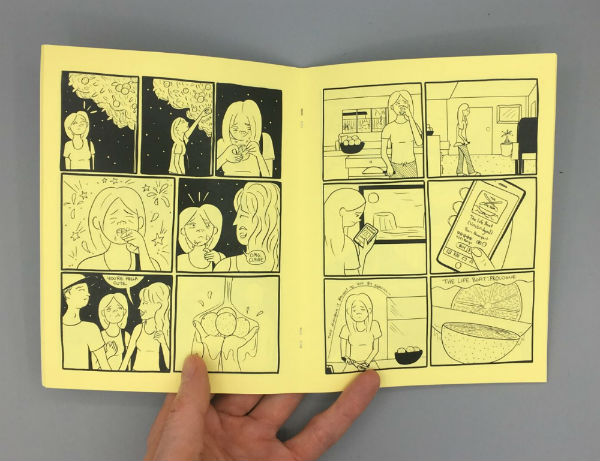 Whit Taylor’s minicomics series Fizzle, published by Radiator Comics, has been something of a slow burn read to date, and that has very much been a huge part of its intrinsic charm. The sedate pace over which it has developed in its three issues has meant we have been able to savour the world Taylor has been building and invest ourselves more fully in its central character Claire, a protagonist whose life is changing not with an abrupt moment of sudden epiphany but rather a gradual realisation that her circumstances can be altered.
Whit Taylor’s minicomics series Fizzle, published by Radiator Comics, has been something of a slow burn read to date, and that has very much been a huge part of its intrinsic charm. The sedate pace over which it has developed in its three issues has meant we have been able to savour the world Taylor has been building and invest ourselves more fully in its central character Claire, a protagonist whose life is changing not with an abrupt moment of sudden epiphany but rather a gradual realisation that her circumstances can be altered.
When we are first introduced to Claire she’s been with her partner, the oft stoned slacker Andy, since meeting him at a student party some years before. In her professional life she is trapped in a job as a barista with a passive aggressive manager so devoid of even rudimentary empathy that they will no doubt represent a familiar figure to many readers. One throwaway discussion, though, is about to push her in an entirely new direction as an interest in fruit flavours and ice pops (ice lollies for our British audience!) begins to take hold…
What’s so relatable about Fizzle is that is that its drama lies in the small frustrations and unspoken disappointments that we all live through and can recognise through Claire’s experiences. The feeling we could be doing so much more with our lives, for example, and the unfulfilled ambitions that define us as much as our achievements. Its familiarity comes in its understatement, from the casual oppression of Claire’s workplace to the painful awkwardness of family parties with Andy’s nearest but not necessarily dearest.
Taylor’s cartooning is not elaborate in detail but rather possesses an emotional immediacy that allows us to connect with her characters on a more instinctive level by capturing the pure essence of the moment rather than over-rendering it. But perhaps less obviously it’s the tempo of her panel to panel storytelling that impresses in terms of bringing us so directly into the mindset and experiences of the cast – the build-ups, the pacing, the quiet pauses and the shifts in perspective communicating the pathos and humanity of their lives. Taylor also has an obvious ear for naturalistic dialogue that gives the story an added sense of veracity.
Whether it’s in self-publishing or micropublishing, small press serial comics can be a difficult sell to an audience simply because the momentum is understandably affected by their incremental delivery. That’s a shame because so much excellent and eventually collected work exists and survives via this method of publishing, and comics like this deserve our support. Relatable and beautifully observed, Fizzle is a prime reminder of the connective power of slice-of-life comics storytelling.
You can buy Fizzle online here from Radiator Comics.
Review by Andy Oliver

















